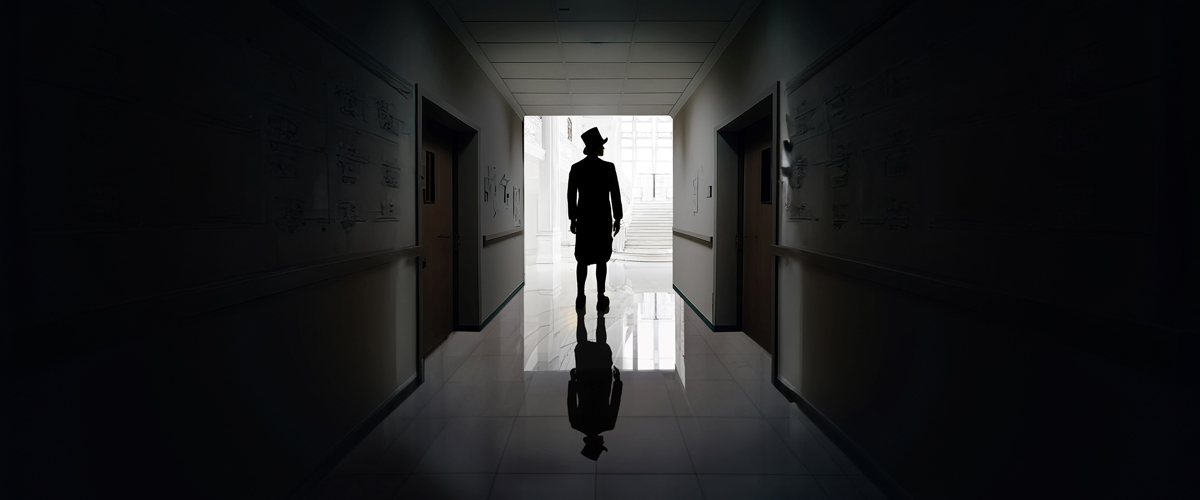The lights come up on a woman who enters, sits down and speaks to someone we cannot see. This unseen character is a rape victim who is going through the brief process of being given advice on discharge from hospital before the counsellor moves on to the next victim. ‘Do you want to do a test?’, the victim is asked. In the background, two puppeteers come on working a Victorian bonnet and dress indicating the timelessness of sex crimes against women.
This disturbing and interesting meditation of the condition of women from the 19th and 20th centuries stays with a hospital theme. We are introduced to three health workers who work respectively in ‘bones, birth and bad news’ as they discuss the precarious state of the NHS, the cuts, the closing of the canteen and hospital library, but ‘who’s got time to read a book’, one asks.
It turns out they do, as they get together for a book club. Over drinks, songs and personal revelations they act out scenes from the novel they are reading The Luminous, a work which references Jack the Ripper and the Matchgirls’ strike.
We see the Grand Guignol of a public autopsy in a Penny Gaff, and a re-enactment of a Jack the Ripper killing. Annie Besant lectures on the match girls’ condition of ‘phossy jaw’ where phosphorous used in match making eroded their bones.
During an increasingly drunken evening the women reveal their lives, the most colourful of which is that of Mags played by Rebecca Loukes. She had a mother committed to Reclaim the Night marches and other demonstrations of the 1980s. In the end a teenaged Mags ‘had to keep the home fires burning’ while her increasingly disturbed mother went off to live at Greenham Common peace camp.
With a creative use of props and projections on the wall this play makes the best of a minimal set. The play addresses the threats women face in terms of sexual assault and as well as the problems of teenage pregnancy and abortion. It has some powerful writing though the overall message is unclear. Is it that bad things happen to women? Undeniably so, throughout history. Is it that there should be more women’s activism? The price that Mags as a girl and a woman has paid for her mother’s activism doesn’t seem to point in that direction. Should the characters be joining the ‘save our hospital’ protesters who they occasionally reference as they can see them at the hospital building in the distance?
In the end, these questions remain unresolved, but perhaps that is the point. By probing into the past and through the explorations of women’s problems and dilemmas, we are left with the fact of persistent misogyny, undeniable throughout history – and how little has changed.
Genre: Drama
Cast: Catherine Dyson, Cassie Friend, Rebecca Loukes
Playwright: Catherine Dyson
Director: Sabina Netherclift
Performance: 1 November. 2024, 7.30pm
See Red Cape Theatre – Touring
Running Time: 90 minutes

